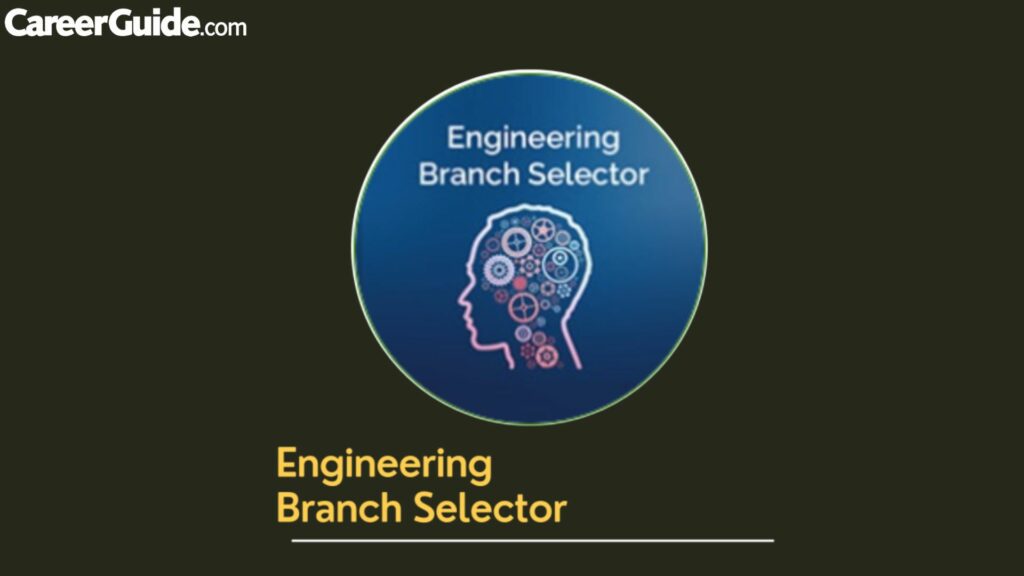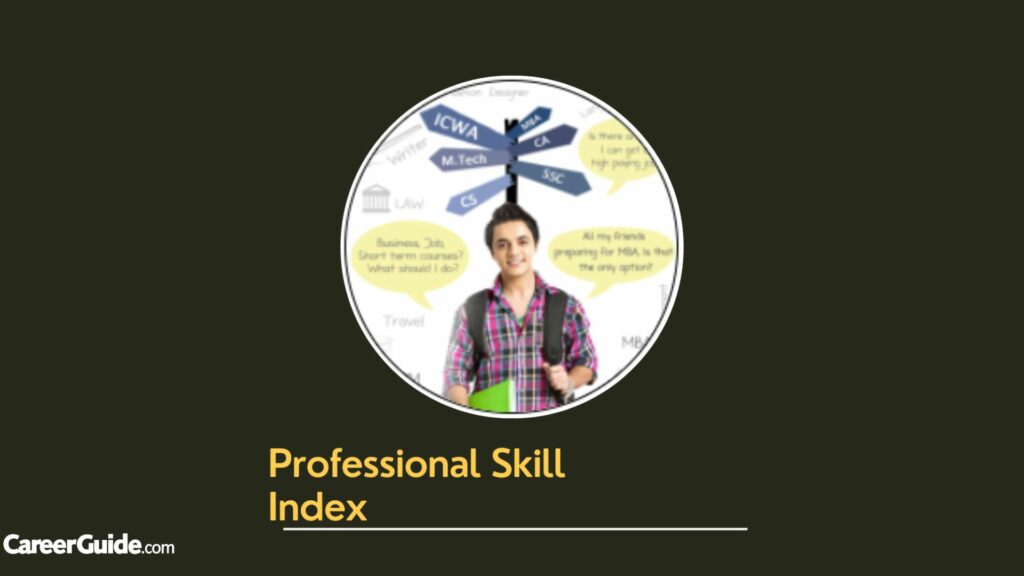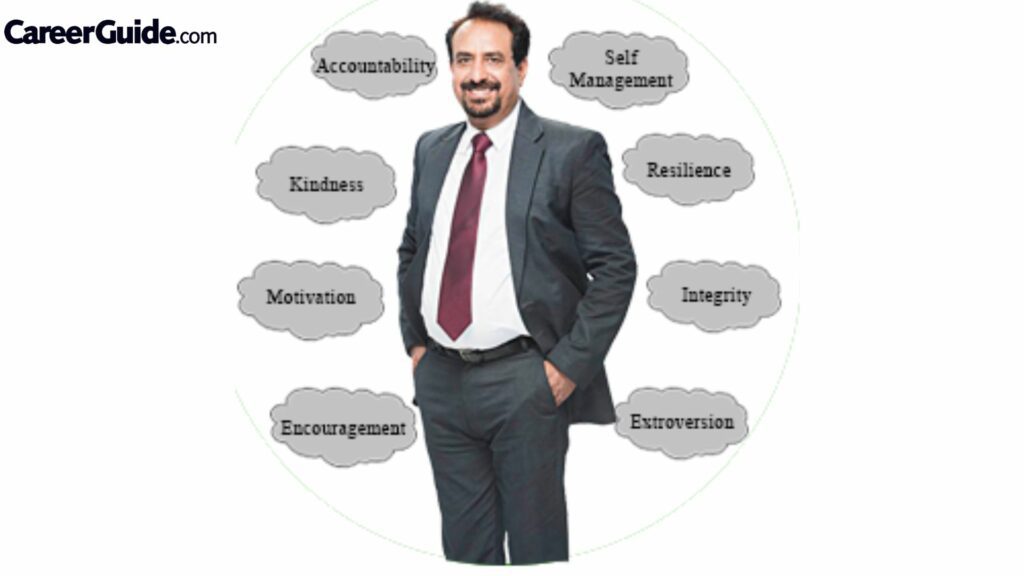In-depth interviews can be an effective tool for exploring specific topics or gathering detailed information from an individual, but they require careful planning and execution to be most effective. When conducting an in-depth interview, it’s important to have a clear understanding of the goals and objectives of the interview and to prepare a structured set of questions that will help you to achieve those goals. Additionally, it’s important to create a supportive and non-threatening environment that encourages the interviewee to open up and share their thoughts and experiences. When done properly, in-depth interviews can provide valuable insights into a person’s attitudes, behaviors, and motivations, which can inform a wide range of decisions and evaluations. Here’s are psychometric: FAQ for psychometric tests.
- What Are Psychometric Tests?
- How Did Psychometric Tests Come Into Existence?
- What Was The Use Of Psychometric Tests In The Past?
- What Circumstances Led To The Growth Of Psychometric Tests?
- What Are The Different Types Of Psychometric Tests Used In Recruitment?
- What Is The Use Of Psychometric Tests In Career Counseling?
- In Which Class Should I First Take My Career Test?
- How Would I Know That The Test Is Good?
- How Do I Decide Which Career Test Is Best Suitable For Me?
- How Do I Know Which Career Test Is The Best Out Of A Variety Of Tests Available In The Market?
- Which Test Shall I Go For, Online Or Offline?
- There Are A Number Of Free Tests Available Online, So Why Should I Go For The Paid Tests?
While it is difficult to completely eliminate the possibility of faking in psychometric tests, they are designed to minimize the chance of deliberately misleading responses. For example, some tests use questions and response formats that are difficult to fake, and they may also include validity checks to detect inconsistent or unrealistic responses. However, it’s important to keep in mind that some individuals may still be able to fake their responses, and psychometric tests should be used in combination with other assessment methods to get a more complete picture of an individual’s abilities and potential.
What Are Psychometric Tests?
Psychometrics are tools that help an individual understand their individual differences or their psychological abilities, which are not measurable by any other means. These abilities are Intelligence, Aptitude, Interest, Personality, Motivation, etc.
- Intelligence Test: These are the tools that are designed to understand the mental/ cognitive functions of the individual. They aim to assess the person’s intellectual potential in areas such as reasoning abilities, problem-solving abilities, decision-making abilities, comprehension, etc.
- Aptitude Tests: are designed to measure the specific abilities of the individual which can range from clerical, perceptual, numerical, and spatial. They help to determine which area is strongest of the individual to help them realize their potential and work on them.
How Did Psychometric Tests Come Into Existence?
Psychological/ Psychometric tests are not a new concept. They can be traced back to have originated in the 19th century. The three milestones that need to be considered while trying to understand psychological testing are
Rudimentary Forms Of Testing In China–
In 2200 B.C. Chinese emperors wanted their officials to be tested every three years to have a record of their fitness. To assess the fitness of the candidates, they had to go through three levels of testing, which when passed allowed them to enter the public office. In the preliminary examination, the candidates were asked to stay in an isolated booth for a day and a night and were required to write a poem and an essay on the topic assigned to them. Those who cleared this level moved to the second level or the district level, and those who cleared the second level were made to enter the final level. Only those who could clear all three levels were considered qualified to serve the public office.
The Brass Instrument Era Of Testing-
In this era, psychologists mistook the concept of simple sensory processes for intelligence. They made use of brass instruments to measure the sensory threshold and reaction time to assess the intelligence level of the individual. Though this method was not the appropriate way to measure intelligence, it acted as a source of light for the upcoming experimental psychologists who worked on this area of testing.
The First Battery Of Intelligence-
Sir Francis Galton was the pioneer of experimental psychology. He initially started with measuring the reaction time and sensory discrimination, same as in the “brass instrument era”, but his procedure was much more modified than the previous era. The procedure was much more amenable than before and he made tests to measure both physical (height, weight) and behavioral characteristics (reaction time to visual and auditory stimulation). Sir Galton is also known as the father of mental testing.
Cattell’s Contribution–
After the contribution of Sir Galton, James McKeen Cattell studied and modified the work of Galton. He gave the term “Mental Test”. The various tests that he worked on were-
- Strength of hand squeeze, Rate of hand movement through a distance of 50 centimeters, Two-point threshold for touch, Degree of pressure needed to cause pain.
- Reaction time for sound—using a device similar to Galton’s Time for naming colors Bisection of a
- 50-centimeter line Judgment of 10 seconds of time Number of letters repeated on one hearing.
What Was The Use Of Psychometric Tests In The Past?
The use of the first psychological test can be traced from China in 2200 BC, where officials had to go through fitness testing every 3 years. They had to undergo three levels of testing to prove themselves qualified for the job. Later, Sir Francis Galton tried to study individual differences and proved that the scores that were derived from the individual testing, i.e. by the use of instruments to measure the physical and the behavioral characteristics of the individual were meaningful and were important to study the person as a whole. After this came James Cattell, who was the first one to coin the term “Mental Test”. He modified the work done by Sir Galton and developed a series of tests to measure mental abilities such as the strength of hand squeeze, Reaction time for sound, etc.
What Circumstances Led To The Growth Of Psychometric Tests?
During the 20th century, psychologists realized that it was necessary to study individual differences, as only then would it be possible to segregate people based on their potential and other characteristics. Once a person is understood as an individual, apart from his/her family, culture and another social context, it will be easy to place the person in the position that best suits him/her. The psychometric tests first originated in China where the tests were used to study the potential of the officials in the military to understand how fit they were. It was then further evolved by Sir Francis Galton to study individual differences by measuring physical and behavioral characteristics. This was further developed by Cattell, who developed batteries (collections of tests) to understand the mental capacity of the individual and then came up with the term “Mental Test”.
What Are The Different Types Of Psychometric Tests Used In Recruitment?
Psychometric tests are being used in recruitment since World War I, where they were used to assess the intelligence and the potential of the candidates to assign them the job that was best suitable to them. These psychometrics are still being used in many areas such as schools, hospitals, and organizations for the recruitment of the individual. Employers these days are using psychometric tools to assess the intelligence, personality, and interest of the employee to determine the best suitable position for them in the organization, as it is only then that the productivity of each employee can be maximized.
What Is The Use Of Psychometric Tests In Career Counseling?
Career counselors help the individual to identify the area of work where they are most satisfied and productive. To identify these areas where the job satisfaction and productivity are highest one should be able to identify their area of interest, their strengths and weaknesses, should be able to enhance their skills required for the job, manage the stress related to work effectively, and resolve the conflict that can arise within the organization. Once the person can develop this deep insight about oneself, they can work efficiently. Psychometric tools help the individual to gain a better insight into their own selves, as they can analyze their observable as well as their non-observable traits.
In Which Class Should I First Take My Career Test?
Making a career is a lifelong process. It is the most crucial step of our life as we spend the maximum number of our waking hours in our organization or the office where we work. From a very early age, we start to prepare ourselves for the kind of profession that we want to be in. As per the Indian education system, a child is made to study all the subjects till the 10th standard. After the Board exams in class 10th, the student is made to choose between the various streams of his/her interest. The available streams are science (with or without biology), commerce (with/without maths), and Arts. These days there is an ample number of options available for the combination of subjects.
My Friend And I Are Very Similar To Each Other. Since She Has Taken A Career Test, Can I Also Go By Her Results?
We usually feel that we are very much similar to our friends. It may be possible that you and your friends possess similar interests and similar personalities and it may also be possible that you both may score somewhat similarly in your exams, but this does not mean that the two of you are completely identical to each other. When we try to determine the best career for the individual we need to keep in mind various factors that influence an individual such as the interest of the person in various fields, the personality, the aptitude that the person holds towards work or the subject, the intellectual ability of the individual. When we try to compare ourselves with our friends we only take into consideration the traits that are overt and are observable and we tend to ignore the covert traits or the unobservable characteristics.
How Would I Know That The Test Is Good?
Psychological or psychometric tests are not just vague, they are standardized. By standardization, we mean uniformity in administering and scoring the test. When a test is developed the test must be standardized. A good test should have the following 3 characteristics:
Reliability:
Reliability can be understood as the consistency in the results. For example: if a person measures his IQ and takes the test again in a week, the score obtained in both the tests should be the same, otherwise, the test cannot be considered a good test.
There are two types of reliability, “internal” and “external”.
- Internal reliability refers to measuring the consistency within the test such as Split-Half reliability– which means that all statements of the test contribute equally to the consistency of the test.
- External reliability refers to the variation in the measure from one use to another such as Test Re-test reliability which measures the stability of the result within the different interval of time.
Validity:
Validity can be defined as the extent to which the test measures what it actually claims to measure.
There are various types of validity in a psychological test such as:
- Face Validity: It is one of the most used and not so sophisticated measures of validity. It determines the validity of the test based on the face value of the statements or the questions.
- Construct Validity: It can be understood as the validity determined by the scores obtained on the test and the prediction made based on the scores obtained.
- Content validity: refers to the type of validity when the test seems to cover the entire range of possible items that should be covered.
Norms:
Norms refer to the understanding of where the individual lies among the population. The raw scores that are obtained from the test seem to have no meaning until they are interpreted with respect to their position in relation to the others. Norms can be based on age, gender, class, literacy, etc.
How Do I Decide Which Career Test Is Best Suitable For Me?
How Do I Know Which Career Test Is The Best Out Of A Variety Of Tests Available In The Market?
Which Test Shall I Go For, Online Or Offline?
These days a person may get a choice regarding whether they want to opt for an online career test or an offline career test. An offline career test means that the test will be conducted using pen-paper and as the client gives the answers on the test, their scores are calculated using the Manual and the interpretation of the scores is also done using the manual. It is a conventional process and is very time-consuming, as it requires the interpreter to be completely engrossed in the scoring. Paper-pen assessment just provides the basic information that is required for the simple analysis. Also, it may become difficult for a person to take this test due to geographical barriers. Lots of time is devoted to formulating the result and usually, results are formulated for one person at a given time.
There Are A Number Of Free Tests Available Online, So Why Should I Go For The Paid Tests?
Yes, in today’s time we can indeed find a number of tests online which are free of cost and claim to give an accurate result related to all your career doubts. However, then there are other tests made by various companies that are charging a certain amount of money to get career tests done. This might seem confusing for the layman to understand. So some of the reasons that one should consider before opting for such free tests are:
- There could be a possibility that some of these free tests may provide you with a limited amount of information or may even show you a truncated picture and then later they demand an amount to get your results generated. Thus, it can be said that these tests just claim to be free of cost but are actually not.
- The other possibility is that even if the test is completely free and does not carry any terms and conditions with it, it tends to be non-reliable and invalid for the purpose it claims to be valid for.
- There is a possibility that these tests are not at all confidential, i.e. the details that we provide about ourselves are not being kept confidential and are being used for some other motives.
Stream Selector Test
The Stream Selector Test is a comprehensive assessment tool designed to assist individuals in identifying their strengths, interests, and aptitudes to make informed decisions about their academic and career paths. This test evaluates various areas such as cognitive abilities, personality traits, and vocational preferences to provide valuable insights into suitable streams and fields of study.
The cognitive abilities section of the test measures an individual’s reasoning, problem-solving, and critical thinking skills. It assesses their capacity to analyze information, make logical deductions, and apply knowledge effectively. This section helps identify areas of cognitive strength, indicating which streams or professions might align with the individual’s mental abilities.
The personality traits assessment examines different aspects of an individual’s character, including their extroversion/introversion, openness to new experiences, conscientiousness, emotional stability, and agreeableness. By understanding their personality profile, individuals can gain insights into work environments that suit their temperament, as well as the types of tasks and interactions that energize them.
Vocational preferences explore an individual’s interests and values related to specific occupations and fields of study. This section helps determine whether someone is inclined towards artistic, scientific, social, or entrepreneurial pursuits. By considering their interests and values, individuals can narrow down their choices and explore careers that align with their passions.
Upon completion of the Stream Selector Test, individuals receive a detailed report outlining their strengths, areas for development, and recommendations for suitable academic or career paths. This report serves as a valuable resource for making informed decisions about educational choices, such as selecting a major in college or choosing a specialized training program.
Ideal Career Test
The Ideal Career Test is a comprehensive assessment tool designed to assist individuals in identifying suitable career paths that align with their interests, skills, values, and personality traits. This test aims to provide valuable insights into the types of occupations and work environments that would be a good fit for an individual, helping them make informed decisions about their career choices.
The test begins by evaluating an individual’s interests and passions. It explores their preferences for various activities, hobbies, and subjects. This assessment helps identify areas that genuinely captivate the individual and can guide them towards career paths that align with their personal interests.
The assessment also evaluates an individual’s skills and aptitudes. It explores their strengths in different areas such as problem-solving, communication, creativity, leadership, and technical abilities. By understanding their skill set, individuals can identify careers that allow them to leverage their natural talents and develop their potential.
Another essential aspect of the Ideal Career Test is the evaluation of an individual’s values and work preferences. It explores their desired work-life balance, preferred work environment, level of independence, and desire for social interaction. Understanding these factors helps individuals find careers that match their values and provide a satisfying work experience.
Personality traits are also a crucial part of the assessment. The test explores an individual’s personality dimensions, such as extroversion/introversion, openness to new experiences, conscientiousness, emotional stability, and agreeableness. By considering their personality profile, individuals can identify careers that align with their temperament and work styles, as well as occupations that provide a conducive environment for personal growth and job satisfaction.
After completing the Ideal Career Test, individuals receive a detailed report outlining their interests, skills, values, personality traits, and recommended career paths. This report serves as a valuable resource for making informed decisions about career choices, setting realistic goals, and pursuing further education or training.
Humanities Career Selector Test
The Humanities Career Selector Test is a specialized assessment tool designed to help individuals explore and identify suitable career paths within the field of humanities. It aims to assess an individual’s interests, skills, values, and personality traits specifically related to the humanities disciplines, providing insights into potential career options within this broad field.
The test begins by evaluating an individual’s interests in various humanities subjects such as literature, history, philosophy, art, and culture. It explores their preferences for engaging with these subjects and helps identify areas of particular fascination. This assessment assists individuals in narrowing down their interests within the humanities and identifying potential career paths that align with their passion.
In addition to interests, the test evaluates an individual’s skills and aptitudes relevant to the humanities. It examines their abilities in critical thinking, research, analysis, writing, communication, and cultural understanding. By understanding their skills within the humanities, individuals can explore careers that allow them to leverage their strengths and contribute meaningfully to the field.
The assessment also takes into account an individual’s values and work preferences within the humanities. It explores their desired work environment, preferred methods of engagement (e.g., research, teaching, creative expression), and potential areas of social impact. Considering these factors helps individuals find careers within the humanities that align with their values and provide a sense of purpose.
Personality traits are another important aspect of the Humanities Career Selector Test. It assesses dimensions such as intellectual curiosity, creativity, empathy, and a passion for lifelong learning. By understanding their personality profile, individuals can identify humanities careers that align with their natural inclinations and work styles, fostering personal fulfillment and professional growth.
Upon completion of the Humanities Career Selector Test, individuals receive a comprehensive report outlining their interests, skills, values, personality traits, and recommended career paths within the humanities. This report serves as a valuable resource for making informed decisions about academic pursuits, such as choosing a humanities major or exploring specialized fields of study.
We may learn about a candidate’s preferred method of communication, how they handle setbacks, and how they would manage a team by assessing and understanding their behavioral style. This kind of knowledge is critical for finding areas for improvement, increasing engagement, and determining whether or not a person is a suitable cultural fit for a team or organization. Dominance, Influence, Stability, and Compliance are used to determine a person’s anxieties, motivators, values, and behavioral style. This also helps us to understand what are the different types of psychometric tests.
Candidates must choose two trait descriptors from a block of four, one ‘most like’ and one ‘least like’, to complete the PPA. This process is repeated 24 times, yielding 48 options out of a total of 96. Rather than comparing scores from a comparison group, an individual’s reaction patterns are compared to themselves.
Commerce Career Selector Test
The Commerce Career Selector Test is a specialized assessment tool designed to assist individuals in exploring and identifying suitable career paths within the field of commerce. This test aims to evaluate an individual’s interests, skills, values, and personality traits specifically related to the commerce disciplines, providing valuable insights into potential career options within this diverse field.
The test begins by assessing an individual’s interests in various commerce subjects, such as accounting, finance, marketing, economics, and business management. It explores their preferences for engaging with these subjects and helps identify areas of particular interest. This assessment assists individuals in narrowing down their interests within the commerce field and identifying potential career paths that align with their passion.
In addition to interests, the test evaluates an individual’s skills and aptitudes relevant to commerce. It examines their abilities in quantitative analysis, financial management, problem-solving, communication, leadership, and entrepreneurship. By understanding their skills within commerce, individuals can explore careers that leverage their strengths and provide opportunities for professional growth.
The assessment also takes into account an individual’s values and work preferences within commerce. It explores their desired work environment, preferred levels of responsibility, potential areas of specialization, and desired work-life balance. Considering these factors helps individuals find commerce careers that align with their values, provide job satisfaction, and offer suitable work dynamics.
Personality traits are another important aspect of the Commerce Career Selector Test. It assesses dimensions such as analytical thinking, attention to detail, risk tolerance, adaptability, and interpersonal skills. By understanding their personality profile, individuals can identify commerce careers that align with their natural inclinations and work styles, promoting personal fulfillment and career success.
Upon completion of the Commerce Career Selector Test, individuals receive a comprehensive report outlining their interests, skills, values, personality traits, and recommended career paths within the commerce field. This report serves as a valuable resource for making informed decisions about academic pursuits, such as choosing a commerce-related major or exploring specialized areas within the field.
Engineering Branch Selector Test
The Engineering Branch Selector Test is a specialized assessment tool designed to assist individuals in exploring and identifying suitable branches or disciplines within the field of engineering. This test aims to evaluate an individual’s interests, skills, values, and personality traits specifically related to the various branches of engineering, providing valuable insights into potential career paths within this diverse and rapidly evolving field.
The test begins by assessing an individual’s interests in different areas of engineering, such as mechanical, electrical, civil, chemical, computer, or aerospace engineering. It explores their preferences for working with machines, structures, electronics, software, or specific applications. This assessment assists individuals in narrowing down their interests within engineering and identifying potential branches that align with their passion.
In addition to interests, the test evaluates an individual’s skills and aptitudes relevant to engineering. It examines their abilities in problem-solving, mathematical analysis, technical knowledge, design thinking, programming, or laboratory work. By understanding their skills within engineering, individuals can explore branches that allow them to leverage their strengths and contribute meaningfully to their chosen field.
The assessment also takes into account an individual’s values and work preferences within engineering. It explores their desired work environment, preferred level of hands-on work, teamwork dynamics, or potential areas of societal impact. Considering these factors helps individuals find engineering branches that align with their values, provide job satisfaction, and offer opportunities for professional growth.
Personality traits are another crucial aspect of the Engineering Branch Selector Test. It assesses dimensions such as logical thinking, attention to detail, creativity, problem-solving approach, and collaborative skills. By understanding their personality profile, individuals can identify engineering branches that align with their natural inclinations and work styles, fostering personal fulfillment and career success.
Upon completion of the Engineering Branch Selector Test, individuals receive a comprehensive report outlining their interests, skills, values, personality traits, and recommended engineering branches. This report serves as a valuable resource for making informed decisions about academic pursuits, such as choosing an engineering major or exploring specialized fields within the discipline.
Professional Skill Index
The Professional Skill Index (PSI) is a comprehensive assessment tool designed to evaluate and measure an individual’s professional skills across various dimensions. It provides a comprehensive overview of an individual’s strengths, areas for improvement, and potential areas of professional growth. The PSI is a valuable resource for individuals seeking to understand and enhance their skillset in order to excel in their careers.
The PSI evaluates a wide range of professional skills that are highly valued in the workplace. These skills may include communication, problem-solving, teamwork, leadership, adaptability, time management, critical thinking, creativity, emotional intelligence, and technological proficiency, among others. By assessing these skills, the PSI provides individuals with a clear understanding of their current skill level in each area.
The assessment process involves a combination of self-assessment and objective evaluation. Individuals may provide self-ratings for each skill, reflecting their perception of their own abilities. Additionally, feedback from peers, supervisors, or mentors may be collected to provide a more comprehensive and balanced assessment of an individual’s skills.
The PSI provides individuals with a detailed report that outlines their skill strengths and areas for improvement. This report may include suggestions for development opportunities, such as training programs, workshops, or mentorship. The PSI helps individuals prioritize their skill enhancement efforts and create a plan for professional growth.
Employers and organizations also find the PSI valuable for talent development and succession planning. By assessing the professional skills of their employees, employers can identify skill gaps within their workforce and design targeted training programs or reassign individuals to roles that align better with their strengths. The PSI enables organizations to optimize their talent pool and foster a culture of continuous learning and development.
Educator Professional Skills
Educator professional skills encompass a wide range of competencies and abilities that are crucial for effective teaching and student engagement. These skills go beyond subject matter expertise and play a vital role in creating a positive and impactful learning environment. Here is an overview of some key professional skills that educators should possess:
- Pedagogical Expertise: Educators should have a deep understanding of teaching methods, curriculum development, and assessment strategies. They should be skilled in designing engaging and effective lesson plans that cater to diverse learning styles and abilities.
- Communication Skills: Clear and effective communication is essential for educators to convey information, facilitate discussions, and provide feedback. Strong verbal and written communication skills help educators engage with students, parents, and colleagues effectively.
- Classroom Management: Educators need to create a well-managed and organized classroom environment that promotes discipline, respect, and a positive learning atmosphere. Effective classroom management skills enable educators to establish routines, manage student behavior, and address conflicts constructively.
- Differentiation: Educators should be adept at differentiating instruction to meet the individual needs of students. This involves adapting teaching methods, materials, and assessments to accommodate diverse learning styles, abilities, and backgrounds.
- Technology Integration: Proficiency in leveraging technology tools and resources is becoming increasingly important in education. Educators should be skilled in integrating technology into their teaching practices to enhance student learning, engagement, and digital literacy.
- Collaboration and Teamwork: Educators often work collaboratively with colleagues, administrators, and other stakeholders. Strong collaboration skills enable educators to participate in professional learning communities, contribute to team efforts, and effectively communicate with colleagues and parents.
- Cultural Competence: In diverse classrooms, educators need to exhibit cultural competence by understanding and valuing the backgrounds, experiences, and perspectives of their students. This skill helps create an inclusive and respectful learning environment that celebrates diversity.
- Continuous Learning: Educators should be committed to lifelong learning and professional development. They should engage in ongoing professional growth, stay updated with research and best practices in education, and seek opportunities for self-improvement.
Skill Based Career Test
A skill-based career test is a specialized assessment tool designed to help individuals identify career paths that align with their unique skills and abilities. This type of test focuses on evaluating an individual’s specific skill set, providing valuable insights into potential career options where those skills can be effectively applied.
The test begins by assessing a wide range of skills that are relevant to various professions and industries. These may include technical skills, such as programming, data analysis, or engineering, as well as soft skills, such as communication, problem-solving, leadership, or creativity. The assessment provides individuals with a comprehensive understanding of their skill strengths and areas for further development.
Based on the results of the assessment, the test generates a detailed report outlining potential career paths that match the individual’s skill profile. The report may provide information on industries, job roles, and specific occupations that require or value the assessed skills. This guidance helps individuals explore career options that are aligned with their natural aptitudes, maximizing their potential for success and job satisfaction.
Furthermore, the test may also provide recommendations for skill development or training opportunities to enhance existing skills or acquire new ones. This allows individuals to proactively pursue professional development activities that align with their career goals and enhance their marketability in their chosen field.
The skill-based career test is a valuable tool for individuals at various stages of their career journey. It can assist high school students in selecting educational paths that align with their skills, guide college students in choosing a major or specialization, and aid professionals in exploring career transitions or advancement opportunities.
It is important to note that the skill-based career test should be considered as one component of the career exploration process. It should be used in conjunction with personal introspection, research, and guidance from career counselors or mentors. Additionally, the test results should be evaluated alongside individual interests, values, and long-term career goals to make well-informed decisions.














